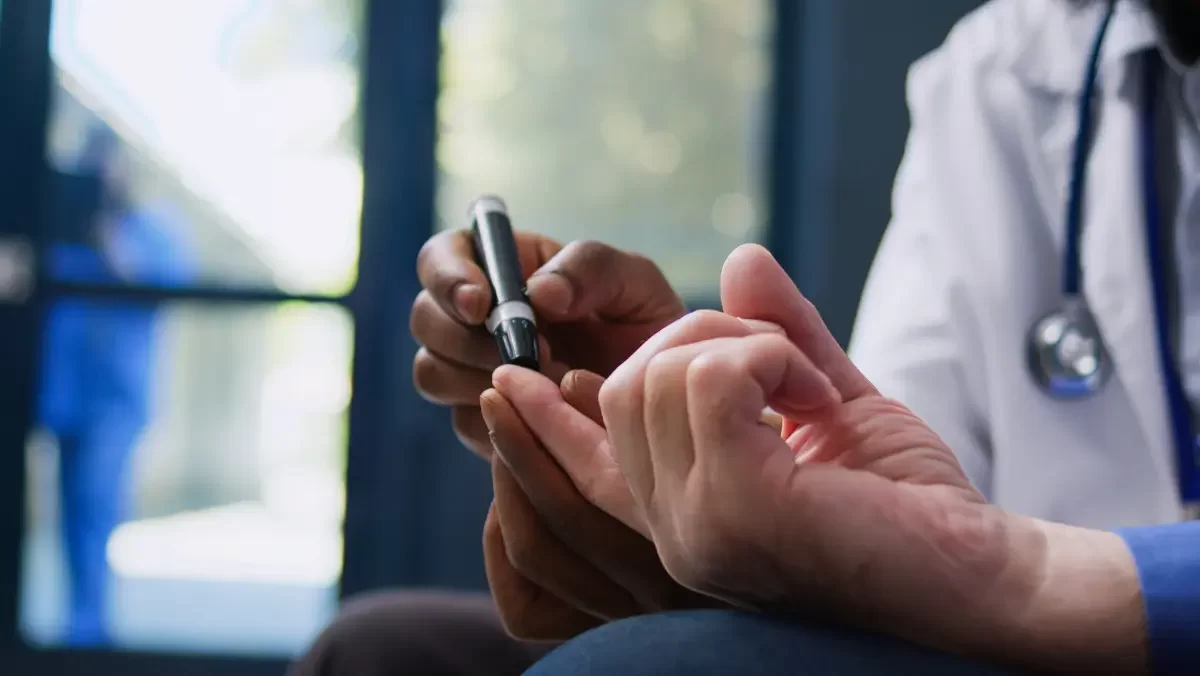Diabetology is a specialized branch of medicine dedicated to the study, diagnosis, treatment, and management of diabetes. This chronic metabolic disorder affects millions globally, leading to severe complications if left untreated. With the prevalence of diabetes rising due to lifestyle changes, genetics, and other risk factors, proper management has become crucial in preventing associated conditions such as heart disease, kidney failure, and nerve damage. Advancements in medical science have provided effective ways to control blood sugar levels, improving the quality of life for patients. Understanding diabetes, its types, symptoms, causes, and diagnosis is essential for better management and prevention.
What is Diabetes?
Diabetes is a metabolic disorder characterized by high blood sugar levels resulting from the body’s inability to produce or effectively use insulin. Insulin, a hormone produced by the pancreas, regulates blood glucose levels to ensure proper energy distribution in the body. When this function is impaired, glucose accumulates in the bloodstream, leading to potential health complications.
- Diabetes is classified as a chronic disease, meaning it requires lifelong management, consistent medical care, and regular monitoring of blood sugar levels to prevent complications.
- It can lead to severe complications, including cardiovascular diseases, neuropathy, retinopathy, and kidney damage, which may significantly impact the patient’s overall health and well-being.
- Proper medical intervention, along with lifestyle modifications, such as maintaining a balanced diet, engaging in regular physical activity, and managing stress, can help patients maintain stable blood sugar levels and lead healthier lives.
Types of Diabetes
Diabetes is categorized into different types based on its cause and nature of onset. The primary types include:
- Type 1 Diabetes: An autoimmune condition where the immune system mistakenly attacks insulin-producing cells in the pancreas, leading to a complete lack of insulin production. It often develops in childhood or adolescence and requires insulin therapy for survival to maintain blood sugar levels.
- Type 2 Diabetes: The most common form, characterized by insulin resistance, where the body either does not produce enough insulin or fails to use it effectively. It is often linked to obesity, sedentary lifestyles, and poor dietary habits, requiring lifestyle changes and medications for management.
- Gestational Diabetes: Occurs during pregnancy when hormonal changes cause insulin resistance, leading to high blood sugar levels. It typically resolves after childbirth but increases the risk of developing Type 2 diabetes later in life if not managed properly.
- Prediabetes: A condition where blood sugar levels are higher than normal but not yet high enough to be classified as Type 2 diabetes. It serves as a warning sign for future health risks and can often be reversed with early intervention and lifestyle modifications.
Symptoms of Diabetes
Recognizing the symptoms of diabetes at an early stage is essential for timely intervention and management. Common signs include:
- Frequent urination, especially at night, which occurs due to the body’s attempt to remove excess glucose from the bloodstream through urine.
- Excessive thirst and increased hunger, as high blood sugar levels cause dehydration and interfere with the body’s ability to regulate hunger signals.
- Unexplained weight loss, despite maintaining a regular diet, as the body starts breaking down fat and muscle for energy due to insulin deficiency.
- Extreme fatigue and irritability, which result from fluctuating blood sugar levels and the body’s inability to properly utilize glucose for energy.
- Slow-healing wounds and recurrent infections, as high blood sugar levels weaken the immune system, reducing the body’s ability to fight infections and repair damaged tissues.
- Blurred vision due to fluctuating blood sugar levels, which can cause swelling in the eye lenses, leading to difficulty in focusing and vision impairment.
- Tingling or numbness in hands and feet due to nerve damage, a condition known as diabetic neuropathy, which results from prolonged high blood sugar levels damaging the nerves.
If these symptoms persist, it is crucial to seek medical evaluation to determine the underlying cause and receive appropriate treatment.
Causes of Diabetes
Diabetes develops due to a combination of genetic and environmental factors that affect insulin production and utilization. The main contributing factors include:
- Genetic Predisposition: A family history of diabetes increases the risk of developing the condition, as certain genetic markers are associated with insulin resistance and beta-cell dysfunction.
- Obesity: Excess body weight, particularly abdominal fat, contributes to insulin resistance by affecting the body’s ability to regulate blood sugar levels effectively.
- Physical Inactivity: A sedentary lifestyle reduces the body’s ability to use insulin efficiently, leading to increased blood sugar levels and higher diabetes risk.
- Poor Diet: High consumption of processed foods, sugary beverages, and unhealthy fats can lead to weight gain and insulin resistance, increasing the likelihood of developing diabetes.
- Hormonal Imbalances: Conditions such as polycystic ovary syndrome (PCOS) and hormonal changes during pregnancy can increase susceptibility to insulin resistance and diabetes.
- Autoimmune Disorders: In Type 1 diabetes, the immune system mistakenly attacks and destroys insulin-producing pancreatic cells, resulting in complete insulin deficiency.
Diagnosis
Early diagnosis of diabetes is crucial in preventing complications and ensuring effective treatment. Healthcare professionals, including endocrinologists, use several tests to assess blood glucose levels and determine the presence of diabetes. These may include fasting blood glucose tests, oral glucose tolerance tests, and A1C tests.
Early intervention helps in managing the condition, preventing long-term health issues like kidney damage, neuropathy, and cardiovascular diseases. Endocrinologyplays a pivotal role in diabetes care, as endocrinologists specialize in hormone-related disorders, including diabetes management. By adjusting lifestyle factors, medications, and offering personalized treatment plans, endocrinologists help individuals with diabetes lead healthier, more manageable lives.
Regular monitoring and comprehensive care are essential for optimal diabetes management, reducing the risk of complications and enhancing the patient’s quality of life.
- Fasting Blood Sugar Test (FBS): Measures blood glucose levels after an overnight fast of at least eight hours. A reading of 126 mg/dL or higher on two separate occasions indicates diabetes.
- Oral Glucose Tolerance Test (OGTT): Involves drinking a glucose solution, followed by blood sugar measurements at regular intervals to assess how the body processes glucose. A reading above 200 mg/dL after two hours confirms diabetes.
- Glycated Hemoglobin (HbA1c) Test: Reflects average blood sugar levels over the past two to three months. An HbA1c level of 6.5% or higher confirms diabetes, while a range of 5.7% to 6.4% indicates prediabetes.
- Random Blood Sugar Test: Measures blood glucose levels at any time of the day, regardless of when the last meal was consumed. A reading above 200 mg/dL suggests diabetes.
- Continuous Glucose Monitoring (CGM): Provides real-time blood sugar readings to help manage fluctuations effectively and prevent sudden spikes or drops in glucose levels.
Conclusion
Diabetology plays a vital role in managing and preventing diabetes-related complications through timely diagnosis, treatment, and lifestyle modifications. With the increasing prevalence of diabetes worldwide, understanding its causes, symptoms, and treatment options is essential for maintaining overall health. At Prime Indian Hospital, our specialized diabetology team provides comprehensive care tailored to each patient’s needs, ensuring optimal management and improved quality of life.














